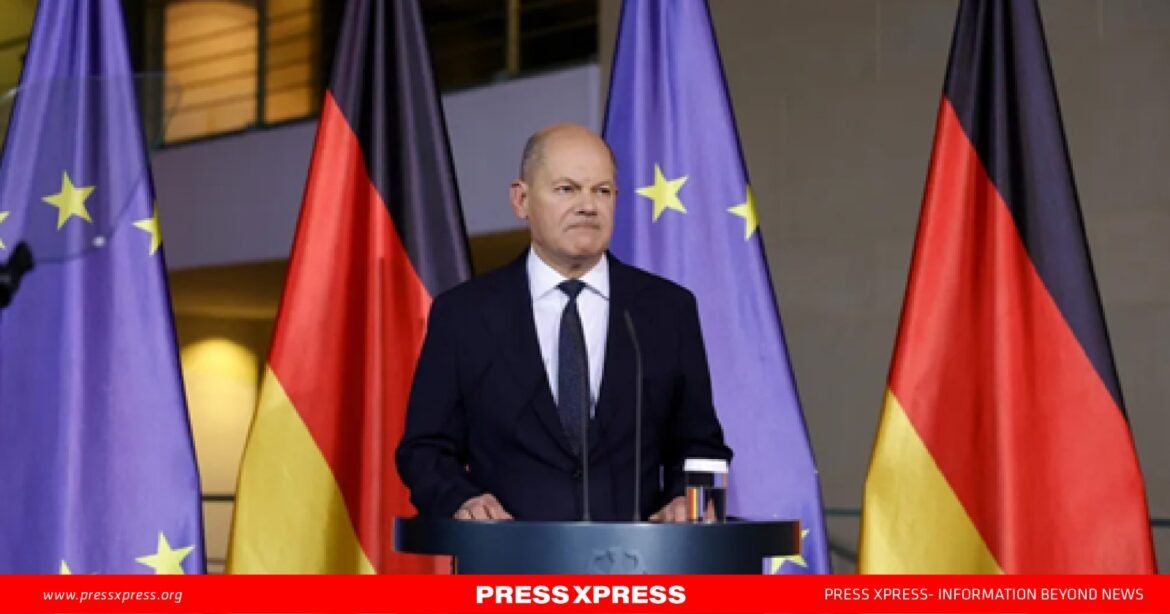The abrupt collapse of Germany’s governing coalition under Chancellor Olaf Scholz marks a critical moment in German politics, one that will have significant implications for both domestic policy and European geopolitics. Scholz’s decision to dismiss Finance Minister Christian Lindner on November 6, effectively unraveling the coalition, has sent shockwaves through the political landscape. As Germany prepares for a potential early election, the path forward is fraught with challenges, from managing economic turbulence to restoring political stability.

Root Causes: An Ailing Economy and Political Friction
Germany’s coalition government, formed by Scholz’s Social Democrats (SPD), the Greens, and the neoliberal Free Democratic Party (FDP), faced deep-seated divisions over economic policy. With Germany facing mounting economic struggles—including low growth, high inflation, and an ongoing energy transition—the FDP’s push for austerity measures clashed with the SPD and Greens’ calls for more expansive fiscal policies.

In September, inflation dropped to 1.6%, the lowest since early 2021, but rose unexpectedly to 2.0% in October, driven by increased prices in services and food despite a fall in energy costs.
These economic tensions and ideological divergence exacerbated already fragile coalition dynamics, culminating in the removal of Lindner from his finance minister role and triggering the coalition’s collapse.
A Political Timeline: Steps Toward a New Government
The coming months will be pivotal for Germany’s political landscape. Scholz has outlined a tentative timeline, beginning with a vote of no confidence in January, a constitutional procedure that requires Bundestag members to affirm their support for the chancellor. Given the lack of backing from the FDP and opposition CDU, Scholz is expected to lose this vote, opening the path for an early election.
After a vote of no confidence, the next steps will be as follows:
Dissolution of Parliament: Should the Bundestag fail to support Scholz, he will request the federal president, Frank-Walter Steinmeier, to dissolve parliament, paving the way for new elections. Steinmeier has signaled readiness to proceed with this step, which could lead to an election within 60 days.
Snap Elections and Reshaping the Bundestag: If Scholz’s timeline holds, the election could be held as early as March. Under Germany’s new electoral reforms, the Bundestag will be reduced from 733 seats to 630 (Federal Ministry of the Interior and Community). This reform could shift parliamentary power dynamics, affecting parties like the FDP, which may struggle to meet the 5% threshold for representation.
Forming a New Government: Current polling data indicates that the next Bundestag may lean toward a grand coalition between the CDU/CSU and SPD, reflecting the likely sidelining of the FDP, which is expected to fall short of the 5% threshold needed to enter parliament. This coalition structure, however, raises questions about the SPD’s and CDU’s ability to collaborate given recent tensions and policy differences.

Economic and Social Implications of Political Instability
Germany’s economy, the largest in Europe, is experiencing sluggish growth and faces an uncertain future as global economic trends shift. A protracted period of political instability could exacerbate these challenges, especially if critical fiscal and regulatory reforms are delayed.
Energy Policy and the Green Transition: Germany’s dependence on Russian energy imports—previously around 55% of its natural gas supply (Federal Ministry for Economic Affairs and Energy, 2022)—has driven the need for rapid energy diversification. Political instability could hinder Germany’s progress toward renewable energy, delaying the phasing out of coal and nuclear energy, which remains targeted for 2038 and 2022, respectively.
Financial Markets and Investor Confidence: Germany’s bond yields have risen, with the 10-year bund yield increasing from -0.18% in early 2022 to over 2.5% in 2023 (Bundesbank). Investor confidence remains cautious, as uncertainty surrounding Germany’s fiscal direction affects market stability. A potential CDU-led government may alleviate concerns with its fiscally conservative approach, although protracted coalition negotiations could lead to market volatility.
Labor and Social Policies: Germany’s aging population, with nearly 21% of Germans aged 65 and older presents structural challenges for its labor market. Scholz’s government had proposed initiatives to address these demographic shifts, but austerity measures likely under a CDU-led government could reduce funding for social welfare programs, including pensions and healthcare.

Geopolitical Consequences: Europe Watches Closely
The impact of Germany’s political instability extends beyond its borders, with significant implications for European Union (EU) cohesion and global geopolitics.
EU Leadership and Stability: Germany has long been seen as a cornerstone of the EU’s political and economic stability. The prospect of a prolonged political vacuum in Berlin may weaken the EU’s ability to respond cohesively to global challenges, from security threats to climate change. In recent years, Germany has played a central role in mediating EU policy disputes, particularly on issues like asylum and migration. Without a stable German government, the EU may find it more challenging to achieve consensus on these divisive issues.
Relations with the United States and China: Germany plays a pivotal role in the European Union’s trade relationship with China. In 2023, Germany exported goods worth €97 billion to China, accounting for 13.6% of its extra-EU exports. Given this extensive trade engagement, any shift toward a more confrontational stance with Beijing could have profound implications for Germany’s economy and, by extension, the EU’s economic stability. The intricate trade ties between Germany and China highlight the complexities involved in navigating EU-China relations, especially when considering policy adjustments that may affect this critical economic partnership.

Energy Security and Dependence on Russian Resources: Despite recent efforts, Germany remains partially reliant on Russian energy, complicating its energy diversification goals. A stable government is essential to continue expanding LNG facilities and renewable energy sources. Failure to address energy security could increase Germany’s vulnerability to future supply disruptions, affecting the broader EU energy landscape.
Lastly, Germany’s current political crisis presents a profound challenge for Europe’s largest economy. The expected early election in 2024 will likely redefine Germany’s political landscape, shaping the country’s domestic and foreign policy for years to come.


